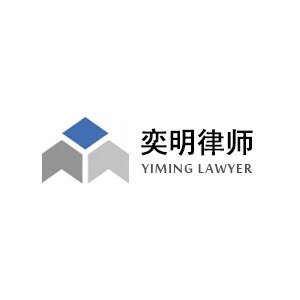Best Civil & Human Rights Lawyers in Beijing
Share your needs with us, get contacted by law firms.
Free. Takes 2 min.
List of the best lawyers in Beijing, China
About Civil & Human Rights Law in Beijing, China
In Beijing, as the capital city of China, Civil & Human Rights law is largely dictated by the central government and is grounded in the Constitution of the People's Republic of China. The Chinese Constitution stipulates a range of rights for its citizens, including equality before the law, freedom of speech, press, assembly, association, procession, and demonstration, as well as religious freedoms. However, the practical enforcement of these rights is often subject to the interpretation and policy guidelines of the Chinese Communist Party. This can lead to a complexity in understanding and exercising such rights within Beijing and across the nation.
Why You May Need a Lawyer
Individuals may require legal help in Civil & Human Rights in various circumstances, including if they feel that their personal rights have been violated, such as unlawful detention, discrimination, or restrictions on freedom of expression. Foreign nationals in Beijing might also seek legal advice if they encounter difficulties related to immigration laws, such as visa issues or residency statuses. Additionally, those who wish to engage in public activities, such as protests or forming an organization, may require legal assistance to ensure compliance with Chinese regulations.
Local Laws Overview
The Civil & Human Rights legal framework in Beijing is heavily influenced by national legislation and policies. Key aspects include the Constitution of the People’s Republic of China, the Criminal Law, and various administrative regulations. China also has a National Human Rights Action Plan which sets out objectives and policies, although its implementation is inconsistent. The legal system does not operate on the principle of case law, and as such, the interpretation and enforcement of these regulations can vary significantly. It's important to be aware that some international human rights standards may not be as rigorously upheld as in other jurisdictions.
Frequently Asked Questions
What rights do I have under the Chinese Constitution in Beijing?
Under the Chinese Constitution, you have rights to equality, freedom of speech, press, assembly, association, procession, and demonstration, as well as religious freedoms. However, practical limitations exist on these rights.
Can I legally protest or demonstrate in Beijing?
Legal protests and demonstrations are permitted but require prior approval from authorities, which can be difficult to obtain and come with strict conditions.
What should I do if I’m facing discrimination in Beijing?
Document any incidents of discrimination and seek legal counsel. While China has anti-discrimination laws, legal recourse can be challenging and is often dependent on the specifics of the case and the political climate.
Is there freedom of religion in Beijing?
Freedom of religion is protected under the Chinese Constitution, but the state regulates religious practices closely and only recognizes five official religions. Religious activities outside of state-sanctioned channels can face restrictions or interventions.
How are the rights of foreign nationals protected in Beijing?
Foreign nationals are subject to the Chinese laws and have the right to consular protection; however, they can experience challenges related to residency, work permits, and local enforcement of laws.
What can I do if my right to free speech has been violated?
Contact a lawyer promptly to assess your situation. Free speech is a sensitive issue and the boundaries of permissible speech can be unclear, particularly concerning political or social commentary.
Are there laws against workplace discrimination in Beijing?
Chinese laws prohibit discrimination based on nationality, race, gender, and religion, among others, but enforcement is not always effective.
What is the role of the police in upholding Civil & Human Rights in Beijing?
The police are charged with maintaining public order and enforcing laws, but there have been reports of overreach, which can lead to human rights complaints.
Can I seek asylum in Beijing on Human Rights grounds?
China has acceded to the UN Refugee Convention, and there is a mechanism for seeking asylum, but it is not commonly applied and can be a complex process.
Where can I report a violation of Civil & Human Rights?
Violations can be reported to a lawyer, local NGO specializing in human rights, or the National Human Rights Commission of China, although outcomes can be uncertain.
Additional Resources
Those in need of legal advice on Civil & Human Rights in Beijing may refer to the Ministry of Justice of the People’s Republic of China or local legal aid services for initial guidance. Non-governmental organizations, such as Chinese Human Rights Defenders or Amnesty International, may also provide resources and assistance, although they may face challenges in operating openly within the country.
Next Steps
If you need legal assistance with Civil & Human Rights issues in Beijing, the first step is to seek a reputable lawyer experienced in Chinese law and human rights cases. It may also be useful to consult with international NGOs that operate in the field of human rights to seek advice and support. Always ensure that your actions remain within the bounds of local laws to avoid exacerbating the situation.
Lawzana helps you find the best lawyers and law firms in Beijing through a curated and pre-screened list of qualified legal professionals. Our platform offers rankings and detailed profiles of attorneys and law firms, allowing you to compare based on practice areas, including Civil & Human Rights, experience, and client feedback.
Each profile includes a description of the firm's areas of practice, client reviews, team members and partners, year of establishment, spoken languages, office locations, contact information, social media presence, and any published articles or resources. Most firms on our platform speak English and are experienced in both local and international legal matters.
Get a quote from top-rated law firms in Beijing, China — quickly, securely, and without unnecessary hassle.
Disclaimer:
The information provided on this page is for general informational purposes only and does not constitute legal advice. While we strive to ensure the accuracy and relevance of the content, legal information may change over time, and interpretations of the law can vary. You should always consult with a qualified legal professional for advice specific to your situation.
We disclaim all liability for actions taken or not taken based on the content of this page. If you believe any information is incorrect or outdated, please contact us, and we will review and update it where appropriate.
Browse civil & human rights law firms by service in Beijing, China
Beijing, China Attorneys in related practice areas.









